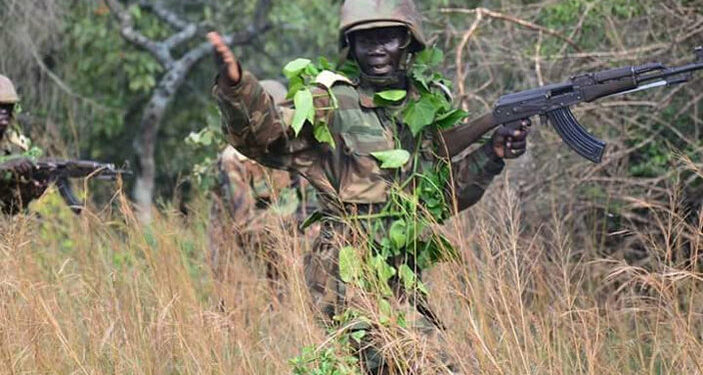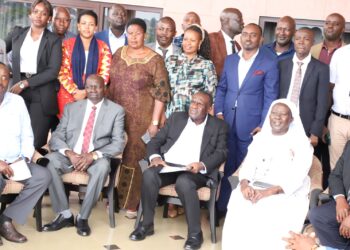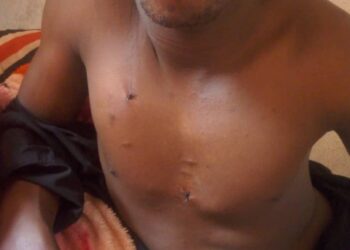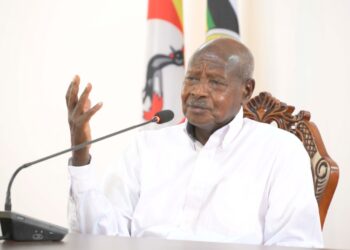Uganda People’s Defence Forces (UPDF) supported by the Special Forces of the Armed Forces of the Democratic Republic of Congo have continued to attack camps belonging to terrorists of Allied Democratic Forces (ADF).
In a joint communique, UPDF Spokesperson Brig Gen Flavia Byekwaso and DRC’s major General Leon-Richard Kasonga Cibangu say the special units are currently in search operations on areas that were shelled at dawn on 30 November 2021 by the two militaries.
On Tuesday, the Ugandan military launched joint air and artillery raids with forces from the neighbouring DRC against the armed group.
“This morning, we have launched joint air and artillery strikes against ADF camps with our Congolese allies,” Uganda People’s Defence Forces (UPDF) Spokesperson Brig Flavia Byekwaso tweeted on Tuesday.
Ugandan authorities have blamed the ADF for deadly suicide bombings in the capital, Kampala, earlier this month. The armed group has been accused of carrying out dozens of attacks in the eastern DRC.
DRC army Spokesperson Kasonga said in a statement that “for the time being, Congolese special forces supported by Ugandan special units will carry out search and control operations to clear and secure ADF positions affected by this morning’s strikes.”
Following the terror attack on Kampala, the Islamic State came out to claim responsibility for the two deadly explosions.
At least seven people(including 3 suicide bombers) died in the incident and more than 3o were injured in the attacks, which took place within about 550 yards and three minutes of each other in Kampala’s business district, police spokesperson Fred Enanga said.
Police also shot and injured a fourth would-be suicide bomber in Nansana and during a search of the alleged attacker’s residence, security operatives recovered a suicide vest and other bomb-making equipment, Enanga revealed.
Police blamed the attack on the Allied Democratic Forces, an Islamist group that started an insurgency against Uganda’s President, Yoweri Museveni, in the 1990s and in 2017 pledged allegiance to Islamic State, or ISIS. Islamic State later claimed responsibility for Tuesday’s attack through its Amaq news agency.
The militant group’s leadership formally recognized the ADF as one of its affiliates in July 2019. The ADF usually operates from the jungles of the eastern Democratic Republic of Congo, but European security officials say it has recently become emboldened to launch high-profile attacks in Uganda and neighboring Rwanda after receiving sizable funding and technical assistance from Islamic State’s central leadership.
At a news conference recently, Ugandan police showed surveillance-camera footage from the scenes of the blasts. The first attacker, wearing a dark blue hooded jacket, detonated a heavy backpack as he approached two police trucks near Kampala’s central police station, hitting more than a dozen officers, including some inside the station, Enanga said.
A second video showed two alleged suicide bombers riding on motorcycles close to the main entrance of Uganda’s parliament before setting off their explosives. The blast set several vehicles on fire and sent dozens of law makers scampering for safety. Local authorities switched off electricity supply to buildings in the central business district Tuesday afternoon, citing the possibility of more attacks.
On Oct. 25, ISIS said ADF operatives were behind an explosion at a restaurant in a Kampala suburb that killed a waitress the previous day—the first time ISIS claimed responsibility for an attack in Uganda. On Oct. 26, several people were injured when a suicide bomber detonated an explosive device on a bus driving in the outskirts of Kampala.
Police at the time said the perpetrator of the bus attack was also a member of the ADF, although there hasn’t been a formal claim of responsibility from ISIS for that bombing.
Do you have a story in your community or an opinion to share with us: Email us at editorial@watchdoguganda.com













